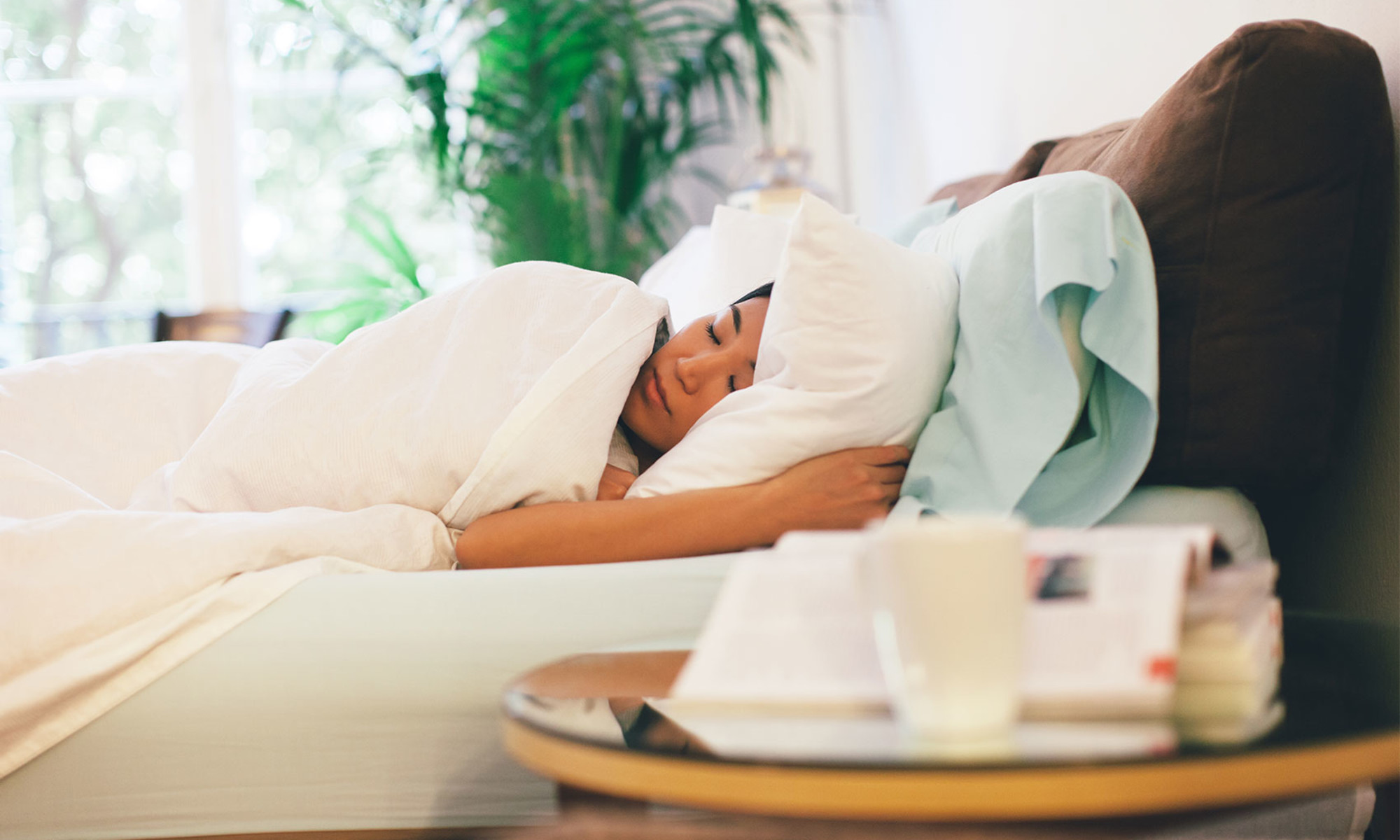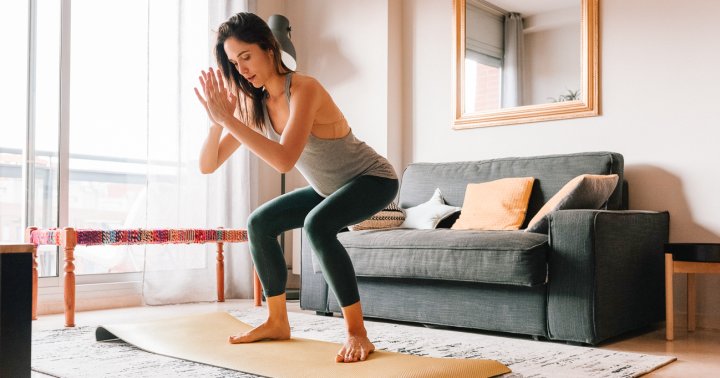Menopause Can Disrupt Sleep—These 2 Unexpected Things Can Help
And they're basically free.

Image by BONNINSTUDIO / Stocksy November 2, 2023 From the hot flashes to the irritability, menopause comes with a host of side effects and symptoms—and sleep can take a big hit as a result. But according to new research published in the journal Menopause, there are two simple and accessible things women can do to improve their sleep quality, despite going through menopause. Here's what to know.
Studying how menopausal women can improve sleep
Sleep disturbances and subsequent fatigue are some of the biggest issues for menopausal women, with previous research from 2016 finding that 76% of participants transitioning through menopause experienced fatigue. So for this study, researchers wanted to know which complementary and alternative medicine (CAM) techniques could help menopausal women get some shut eye.
They specifically wanted to look at two CAM methods: therapeutic touch and music. Therapeutic touch is described as a noninvasive intervention that directs and balances life energy within the patient, for reported benefits like accelerated natural healing and increased energy flow in the body.
Music, meanwhile, is believed in CAM to release endorphins, lower heart and respiratory rate, lower blood pressure, and reduce pain, anxiety, sadness, and stress.
But would they help menopausal women sleep? To find out, the researchers split over 100 menopausal women into three groups: one control group, one group who received therapeutic touch once a week for four weeks, and one group who listened to music for half an hour every night before bed.
Following the four weeks, both music and therapeutic touch were found to significantly improve sleep quality, as well as improve menopause symptoms and menopause-specific quality of life overall, compared to the control group.
What to do about it
While you should always talk with your primary care provider if you're experiencing menopause-related symptoms, the findings of this study suggest two simple and natural techniques could greatly improve sleep if you're struggling. (And of course, they can also be used in tandem with any medications your doctor might prescribe.)
Do a search to see if there are any practitioners near you who offer therapeutic touch and see if you can book an appointment. Even if you can't, this study says music can help improve sleep sans touch, so that works too.
The takeaway
If your sleep has been suffering because of menopause, odds are you could use a good night's sleep. Put this study to the test and give yourself ample time to unwind tonight, with a relaxing playlist and perhaps a massage as well. You might just be snoozing in no time.

 JaneWalter
JaneWalter 


































